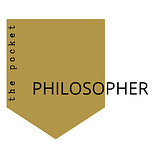Hello everyone,
Let me start today with a question: Do you play video games?
Candy Crush, Fortnite, Minecraft?
I’m one of the few, the very few, that somehow missed the boat. I’ve never played anything beyond a trial, or found joy in the experience of gaming in general.
Similarly, I was also averse to board games for most of my life. All things gaming, anything that didn’t have a “real-world” value just wasn’t sticky for me.
I’m not sure what it was to be honest.
But in time, my outlook has changed. And so too did my understanding of “real-world.”
In fact, it wasn’t until recently that I’ve learned the value, art, pleasure, and potential that games have in the way we behave, interact, and see ourselves.
It's this recent personal evolution that spurred my interest in Game Theory and a desire to learn and share with you.
Today's post was largely inspired from a timely talk I sat in on given by Mitch Cantor—Senior Developer at Micheal Hyatt and Company in Nashville, TN. (If you follow that link, you can actually access the slides from the presentation, highly recommend, thanks Mitch!)
Today I’m specifically interested in studying the basic ways that huge tech movements—Facebook, WhatsApp, Instagram, heck even the Starbucks App on my phone—are locked in to the natural pull we have toward gaming.
According to Mitch, a game is
A contest or world with set rules, mechanics, and principles that people interact with for pleasure
As I consider RAND’s Prisoner’s Dilemma or the work of John Maynard Smith that we analyzed over the last two days, it’s easy to see how these scientists were as much artists as they were academics. Replace “for pleasure” with “for research” and very little changes.
In many ways, they created a world—one that mimics and simulates our own—to better understand and predict aspects of reality we cannot readily see. They might as well have created Middle Earth or the Seven Kingdoms.
In fact, these same groups created the building blocks of things like the internet and bitcoin. But more on that later.
I say all of this in the interest of illuminating the scale and leverage that technology platforms have on all of our lives. We become immersed in their worlds in all kinds of ways, from consumer choices to the very ways we perceive reality.
Many of these platforms are leveraging our natural propensity for gaming to build their own world. And it’s worth considering the material and ethical realities of these worlds.
But that is for tomorrow, today we want understand, what is a game?
Mitch notices that games have roughly 3 primary mechanics—or “patterns and constants that define the rules for a game.”
Progress (i.e achievement, leaderboards, status)
Action (i.e Behavioral Momentum, Quests)
Timing (Bonuses, Urgent Optimism)
The mechanics feed the 9 player types we all express in a unique configurations (codified by research team Klugg and Schell).
Competitor—to win
Explorer—to discover
Collector—to collect
Achieve—to have proof of being the best
Joker—to socialize
Director—to be in charge digitally
Storyteller—to create an alternative world and narrative
Performer —to put on a show
Craftsman—to build things and solve puzzles
Consider the last time you became lost in a video game, scrolling on your feed, or bing-watching your newest Netflix obsession.
Someone created a world using the principles of gamification, leveraged behavioral momentum, and activated one of the player types in you to guide your behavior and maintain your attention.
That’s no small feat.
And it speaks to the power of the game theory. Understanding not only the construct of a game, but the influence that proper gamification can have on a society is overwhelming to say the least. And it's why we're here.
And so we pause here for today now that we have defined a common language around game constructs, gamification, and player types.
Tomorrow we will analyze the philosophy, ethics, and sustainability of a digital world that has been commodified at almost every turn.
Games are as natural to humans as stories—in many ways Games are stories. But what happens when that story has an incentive that isn’t obvious, isn’t in the best interest of the mutual good, and tokenizes and atomizes those who are simply seeking community?
Join us tomorrow my friends, until then!
Matt
PS, make sure to check out Mitch’s work, it’s great!


Know someone who would find this interesting, click the button below to share!












